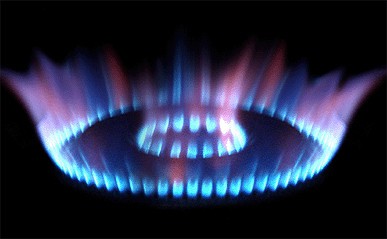
Whilst hydrogen-enriched natural gas is already used in parts of Germany and the Netherlands, current UK legislation restricts the allowed proportion to 0.1 per cent.
The question the Swansea team investigated was how far they could increase the percentage of hydrogen in natural gas, before it became unsuitable as a fuel, for example because the flames became unstable. According to research published by the Royal Society of Chemistry an enrichment of around 30 per cent is possible, when various instability phenomena are taken into account. With domestic gas usage accounting for 9 per cent of UK emissions, the group claims that the move could cut UK carbon dioxide emissions by up to 18 per cent.
Commenting on the research, Dr Charles Dunnill of the Energy Safety Research Institute at Swansea University said: "Up to 30 per cent of the UK's gas supply can be replaced with hydrogen, without needing to modify people's appliances. Hydrogen-enrichment can make a difference now. But it could also prove a valuable stepping-stone towards a future, pure hydrogen, zero carbon gas network."
This latest study comes at a time of growing interest in the role that hydrogen could play in the UK’s energy mix. Last month (May 2018) The Engineer looked in detail at a report carried out by The Frazer-Nash Consultancy for the Department of Business, Energy and Industrial Strategy (BEIS) looking at whether boilers and gas stoves could be redesigned to run on 100 per cent hydrogen.
At the same time, The IMechE published a report calling on the government to support research into power to gas technology, that would enable excess electricity to be stored in the form of hydrogen, which could offer a solution to the intermittency challenges posed by renewables.












Comment: Hydrogen requires a long-term mindset
Hydrogen does have and will have its uses. There are always "nay sayers" but these should not be confused with those raising issues that...